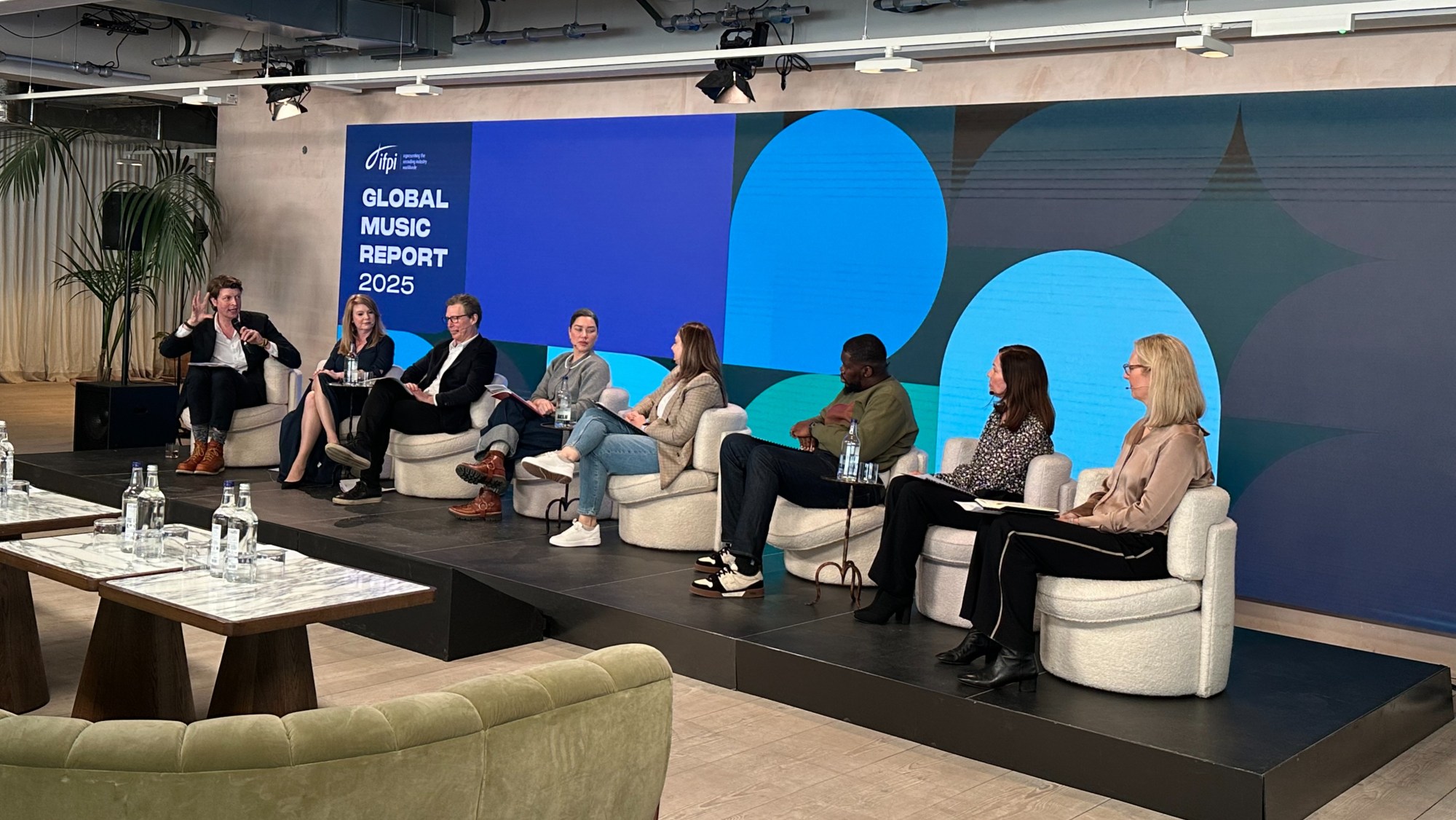AI Can Be a “Very Real and Present Threat to Human Artistry,” Music Industry Lobbying Group Warns
The IFPI emphasizes the importance of supporting human creativity rather than replacing it through policy initiatives. Universal Music is exploring how artificial intelligence can enhance the value proposition for artists. Both organizations are recognizing the potential benefits of integrating technology into the music industry. The focus is on leveraging AI to empower artists and contribute to the creative process. This approach aims to foster innovation while preserving the essential role of human creativity in music.

Global recorded industry organization on Wednesday called on policymakers “to protect music and artistry,” with CEO Victoria Oakley saying: “We must harness the potential of AI to support and amplify human creativity, not to replace it.”
IFPI Annual Global Music Report Launch
She also said this about AI in connection with the Global Music Report launch: “Record companies have embraced its potential to enhance artist creativity and develop new and exciting fan experiences. However, it is very clear that the developers of generative AI systems ‘ingesting’ copyright-protected music to train their models without authorization from the rightsholders poses a very real and present threat to human artistry.”
She made the comments during a launch event in London on Wednesday for IFPI’s annual Global Music Report that showed total trade revenue grow 4.8 percent to $29.6 billion in 2024, marking the 10th consecutive year of gains. The increased we driven by a 9.5 percent jump in revenue, despite a “highly competitive market,” according to the worldwide recording industry organization IFPI.
Oakley told the London event: “At its best, generative AI can be a really powerful tool for artists and consumers alike.” She pointed to generative AI with permission having led to key industry deals already, while on the negative side, AI can contribute to more music piracy. “But we continue to engage with policymakers around the world to set out clearly that copyright rules, which have served everyone well for years and years and given us innovative new services, including streaming, need to be applied equally in a generative AI world and in a way which is transparent and practical for all involved.”
Oakley concluded that “there is a huge challenge ahead” for the industry and policymakers to create an AI framework that works for both creative and technology companies. Industry executives also addressed the opportunities and threats of AI during a panel discussion that was part of the IFPI report launch event.
Industry Executives' Perspectives
Cassandra Strauss, senior director, strategic technology and global digital technology at Universal Music Group, led by CEO Lucian Grainge, noted the company’s use of AI for marketing and other purposes and its launch of its this year. “We are finding ground-breaking partnerships with the private sector in the AI space,” including with YouTube and SoundLabs. “We’re constantly on the lookout for how AI can help and enhance the artist proposition.”
UMG though will not be engaging with generative AI companies “ingesting huge amounts of copyrighted material without a license,” noting that “a lot of these companies are building fortunes off the back of artists.” Instead, the firm is looking to develop business models that are a win-win proposition.
Dennis Kooker, president, global digital business at Sony Music Entertainment, similarly said that he was “optimistic about the opportunity” tied to AI, highlighting that music as an “emotional, passionate product that nearly every human on the planet enjoys” always tends to be affected early by technology and other forms of disruption.
“It’s why so many entrepreneurs want to work with music, and it’s why large platforms need music, a music strategy, because it attracts, acquires and retains customers,” he continued. “So if done right, we should create a whole new way of listening and engaging with music in this next chapter” with AI.
But Kooker also cautioned that “it is going to take a lot of time, effort and years to build this vision” and “a lot of heavy lifting, a lot of testing, a lot of trial and error,” concluding: “History says we will find the next great format. And with that, I think, there will be a very exciting future.”

